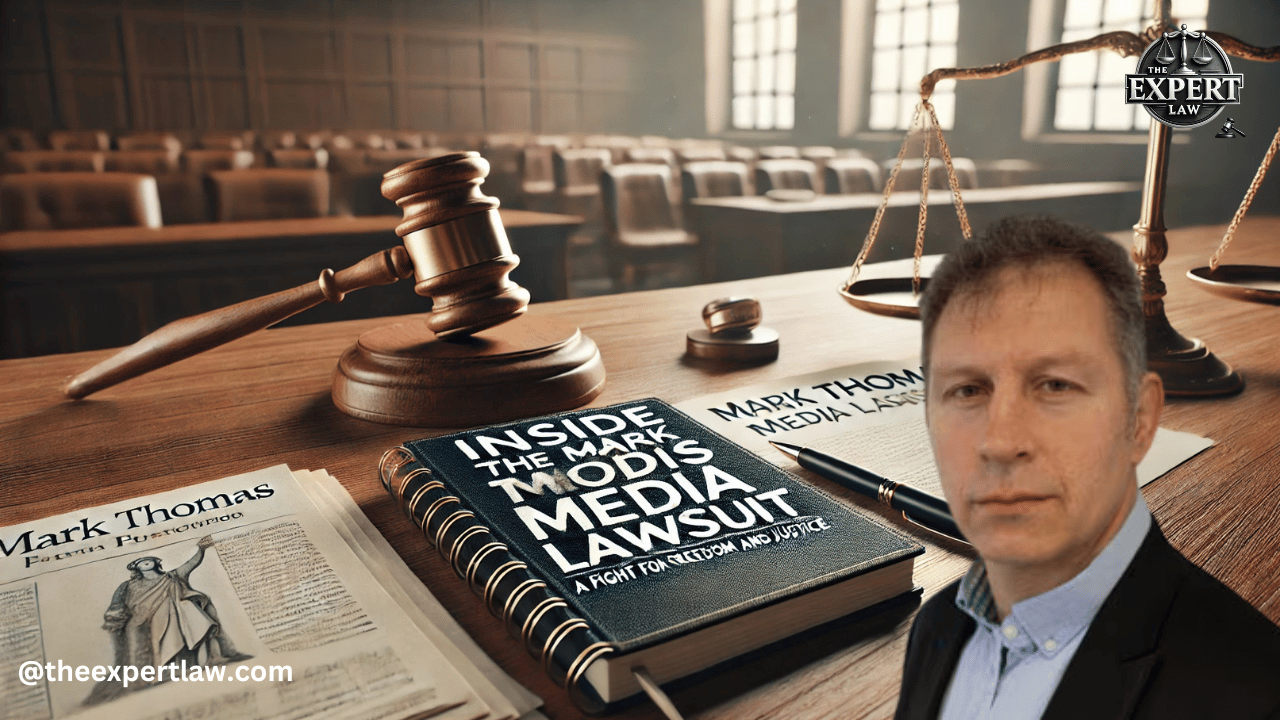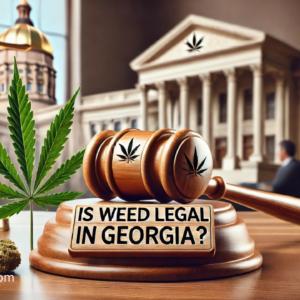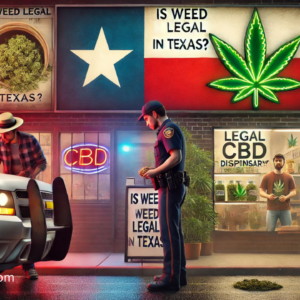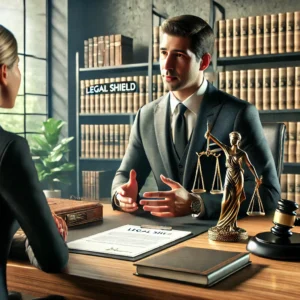Introduction
Mark Thomas, a well-known British comedian and political activist, is more than just a figure of humor—he’s a voice of resistance and change. His sharp wit and unwavering commitment to justice have not only entertained but also exposed cracks in systems that often go unquestioned. Among his many battles, the Mark Thomas media lawsuit stands out as a powerful example of the fight for press freedom and accountability in the face of surveillance.
Imagine a world where the media is constantly watched, where journalists fear they’re being monitored for simply doing their job. That’s the backdrop of Mark Thomas’s legal journey. His case brought to light the unsettling extent of police surveillance in the UK, raising critical questions about the rights of the press and the line between national security and personal freedom.
Thomas’s lawsuit isn’t just a legal battle; it’s a call to protect those who speak truth to power. His actions challenge us to think about what it means to live in a society where journalists and activists can be targeted for standing up for what’s right. In a way, this case isn’t just about Mark Thomas—it’s about protecting your right to know the truth without interference or censorship.
In the sections that follow, we’ll explore the details of the lawsuit, the implications it has for press freedom, and why this case is more relevant now than ever before. Let’s dive deeper into the story of a man who refused to stay silent and the fight that could impact media rights for years to come.
Background on Mark Thomas
Mark Thomas isn’t your typical comedian. He’s the kind of person who uses humor as a weapon to challenge the powerful and expose societal flaws. With a sharp mind and a fearless approach, he has carved a unique space for himself as a satirist and activist, combining comedy with a deep sense of social responsibility.
Over the years, Mark has become known for tackling political and social issues that many shy away from. His stand-up routines and television shows often shine a light on injustices, such as corporate misconduct, government overreach, and violations of civil liberties. But his activism isn’t just confined to the stage or screen; it’s personal, direct, and relentless.
This approach has naturally led him into confrontations with authorities. Mark’s boldness in questioning systems of power has often brought him under scrutiny, especially from institutions that feel threatened by his ability to uncover uncomfortable truths. For Mark, civil liberties and freedom of expression aren’t just abstract ideas—they are principles worth fighting for.
It’s no surprise that his activism has drawn the attention of surveillance agencies. After all, his work consistently exposes the very mechanisms that authorities use to maintain control. His story isn’t just about one man speaking truth to power; it’s about the ongoing struggle to ensure that speaking out remains a right, not a risk.
Mark Thomas reminds us that comedy can be more than entertainment—it can be a tool for change, a mirror to society, and a voice for those who refuse to be silenced. His life and work lay the foundation for understanding why the Mark Thomas media lawsuit is not just significant but necessary in the fight for justice and transparency.
Legal Actions Against Police Surveillance
In 2014, Mark Thomas decided enough was enough. Together with five other journalists, he took a bold step and initiated legal proceedings against the Metropolitan Police. This wasn’t just a routine legal move; it was a stand against a system that had overstepped its bounds. The case specifically targeted the National Domestic Extremism and Disorder Intelligence Unit (NDEDIU), an agency accused of unlawfully monitoring their activities.
For Thomas and his co-claimants, this wasn’t just about personal privacy—it was about the broader implications for press freedom and civil rights. They alleged that the surveillance was unwarranted, lacking any justifiable reason. By keeping tabs on journalists and activists, the police not only infringed on their rights but also sent a chilling message to those seeking to hold power accountable.
This lawsuit wasn’t just a legal battle—it was a wake-up call. It highlighted a troubling reality: when surveillance tools meant for national security are misused, they can become weapons against the very individuals tasked with uncovering the truth. Journalists and activists, who rely on trust and confidentiality, found themselves under a lens, their every move watched without consent.
Mark Thomas’s actions brought this critical issue into the spotlight. His fight wasn’t just for himself but for the countless voices silenced by fear of surveillance. This case became a symbol of resistance, underscoring the need to protect those who dare to question authority. It also raised important questions: Where do we draw the line between security and freedom? And who watches the watchers?
By taking legal action, Thomas reminded us that unchecked surveillance is a threat not only to individuals but to the very fabric of democracy. His case became a rallying point for those who believe in transparency, accountability, and the right to speak without fear of being followed.
Implications for Press Freedom
The surveillance of Mark Thomas and his colleagues didn’t just invade their privacy—it sent shockwaves through the journalistic community and raised critical alarms about the state of press freedom in the UK. When journalists are monitored without clear cause, it doesn’t just affect them; it impacts the public’s right to know. Investigative reporting thrives on trust, confidentiality, and the freedom to uncover truths without fear of being followed or monitored.
For journalists like Thomas, who dedicate their lives to exposing corruption, holding power accountable, and telling stories that matter, surveillance is more than just an inconvenience—it’s a direct threat to their work. If reporters fear they’re being watched, how can they confidently investigate sensitive issues? How can they guarantee the safety of their sources? These are the real stakes behind this case.
Thomas’s legal challenge went beyond addressing his personal experience. It aimed to set a precedent that protects all journalists. The lawsuit brought attention to a troubling practice: using surveillance as a tool to intimidate and control those who challenge authority. This wasn’t just a fight for individual rights; it was a fight for journalistic integrity and the public’s access to unbiased, unfiltered information.
The case also forced the UK to confront uncomfortable truths about balancing national security with press freedom. How do you ensure safety without undermining the very freedoms that define democracy? This question became central to the debates surrounding the lawsuit.
Ultimately, Mark Thomas’s battle served as a reminder of why press freedom is so vital. It’s not just about protecting journalists; it’s about protecting your right to hear the stories that matter, untainted by fear or interference. His fight became a symbol of resilience for those who believe in the power of truth and the role of journalism in shaping a free society.
Uncovering the Invisalign Lawsuit: What It Means for You and the Future of Orthodontics
Outcome and Impact of the Lawsuit
The Mark Thomas media lawsuit achieved something few legal battles manage to do—it forced an entire nation to take a hard look at its surveillance practices and question the fine line between protecting security and preserving freedom. By bringing the actions of the National Domestic Extremism and Disorder Intelligence Unit (NDEDIU) into the spotlight, the lawsuit sparked conversations that resonated far beyond the courtroom.
While exact details of the case’s resolution remain scarce, the significance of the lawsuit lies not only in its legal outcomes but also in its broader impact. It compelled public and legal discourse on critical issues: How far should authorities go in the name of security? And at what point do such measures become a threat to the freedoms they claim to protect?
The case was a wake-up call for institutions and the public alike, exposing the risks of unchecked surveillance. It highlighted the vulnerabilities of journalists and activists whose work depends on confidentiality and trust. More importantly, it brought attention to the need for clear, ethical boundaries in the use of surveillance technologies.
Mark Thomas’s legal battle also empowered others to question the actions of law enforcement and intelligence agencies. It showed that standing up against overreach is not only possible but necessary for safeguarding civil liberties. This ripple effect ensured the lawsuit’s impact extended well beyond its immediate participants.
Ultimately, the case served as a catalyst for ongoing debates about privacy, transparency, and the role of surveillance in modern democracies. It reminded everyone—from journalists to policymakers—that freedom is fragile and must be actively protected against encroachment. Even without a dramatic courtroom victory, the lawsuit left a lasting mark on the conversation about press freedom and the rights of individuals in a surveillance-driven world.
Conclusion
Mark Thomas’s legal battle with media surveillance authorities isn’t just a story of one man’s fight against injustice; it’s a powerful reminder of what’s at stake when civil liberties and press freedom are under threat. His confrontation with the surveillance practices of the National Domestic Extremism and Disorder Intelligence Unit (NDEDIU) brought critical issues to the forefront—issues that affect not just journalists but everyone who values transparency, accountability, and the right to know.
Thomas’s lawsuit highlighted the dangers of unchecked surveillance, especially when it targets those who seek to expose truths that might otherwise remain hidden. His actions reminded us that freedom of the press is not just a luxury—it’s a cornerstone of democracy. Without it, the public loses access to honest reporting and the ability to hold power accountable.
This case also underscored the resilience of individuals who refuse to back down, even when confronted with powerful institutions. It showed that legal actions, though challenging, can spark broader conversations and pave the way for change. Thomas’s courage serves as an inspiration for journalists, activists, and anyone willing to stand up for what’s right.
In the end, the Mark Thomas media lawsuit is more than a legal battle—it’s a call to action. It reminds us all to remain vigilant, to question authority when necessary, and to protect the freedoms that allow truth to thrive. These freedoms aren’t guaranteed; they must be defended, and Mark Thomas’s story is a testament to why that fight is worth it.
Dive into the world of laws with The Expert Law. Visit our website and unlock endless inspiration!





